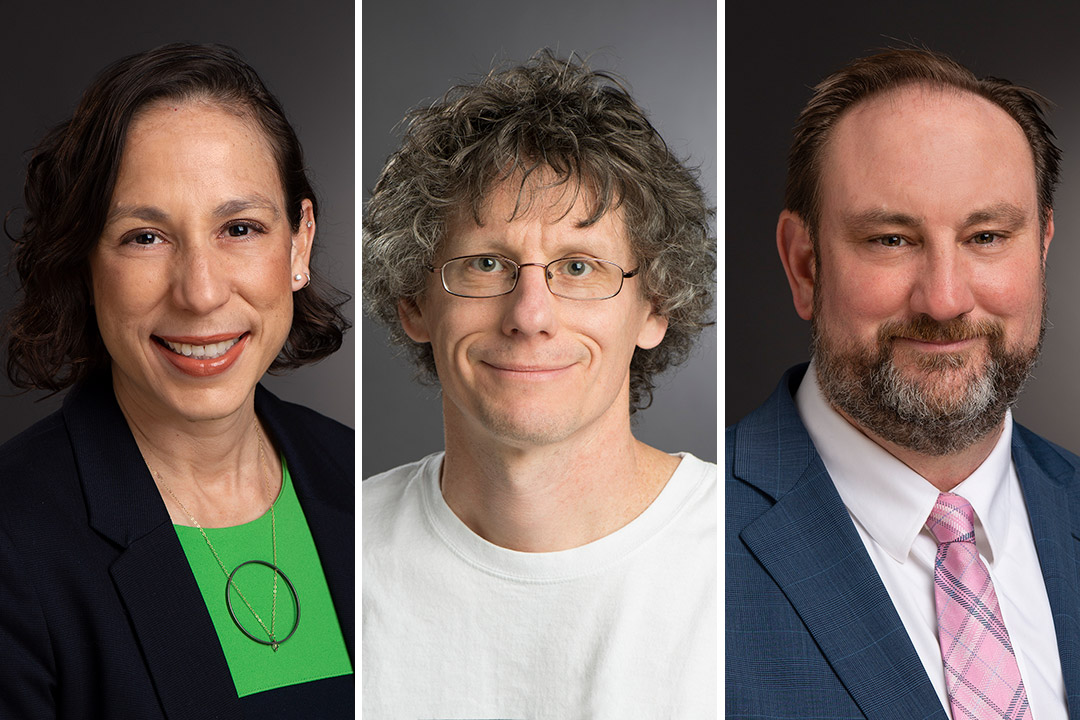NSF awards RIT engineering, liberal arts faculty grant to integrate humanities into engineering education
Co-teaching will address intersection of technology with societal impact
The RIT team was awarded for “Collaborative research: Engineering empathetic engineers – effects of the humanities on engineers’ critical thinking and empathy.” Led by Iris Rivero, left, professor and head of the Department of Industrial and Systems Engineering in RIT’s Kate Gleason College of Engineering, she will be joined by College of Liberal Arts Professor and Associate Dean Michael Laver, right, and Andrew Herbert, professor of psychology.
Researchers at Rochester institute of Technology and Texas Tech University will be incorporating more critical thinking and empathy skills into engineering curricula to prepare students to meet societal challenges today.
The RIT team was awarded for “Collaborative research: Engineering empathetic engineers – effects of the humanities on engineers’ critical thinking and empathy.” Led by Iris Rivero, professor and head of the Department of Industrial and Systems Engineering in RIT’s Kate Gleason College of Engineering, she will be joined by College of Liberal Arts Professor and Associate Dean Michael Laver and Andrew Herbert, professor of psychology.
Continued globalization and advances in technology mean that what engineers and scientists design and develop will impact how future generations communicate and interact. STEM curriculums have traditionally emphasized development of specific skills that relate to scientific and technical knowledge. There remains a critical gap in the knowledge that pertains to how the humanities can be integrated and taught within STEM and its effect on critical thinking and empathy, said Rivero.
“This research contribution is significant because assessment of soft skills, such as empathy, are difficult to determine from traditional STEM problem-solving assignments,” said Rivero. “Improved soft skills are key for workforce development and in solving grand challenges. Developing the hard skills with soft skills within a new STEM curriculum that fully integrates the humanities, STEM students will be better prepared for the workforce and will further understand the social implications that their works have on humanity.”
The $150,000 grant is part of the National Science Foundation’s Improving Undergraduate STEM Education. It is a two-year collaborative study that advances current trends in Humanities-Driven STEM education, in association with John Carrell, assistant professor of industrial engineering, and colleagues from Texas Tech University. Additional comparisons will assess work through the lens of diverse campus environments to determine student outcomes.







